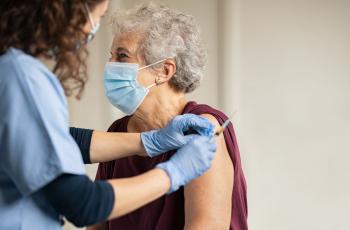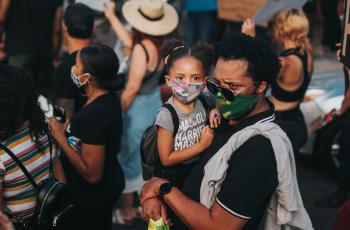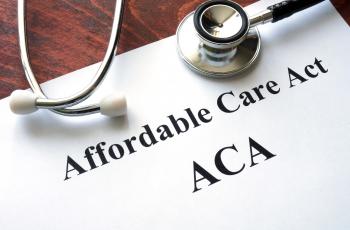What You Should Know About COVID-19 Vaccines and Diabetes
COVID-19 vaccines have been authorized for use in the United States and around the world. We’re here to answer questions for people with diabetes. Are the vaccines safe? Does it matter which vaccine I get? What are the side effects, and how will the vaccine affect my blood sugar? How will I know when it’s my turn to get vaccinated? What happens after I get the vaccine?
Now that two COVID-19 vaccines have been authorized for use in the United States, and eight more around the world, many questions are circulating about the vaccines, their safety, and when to get vaccinated. People with type 2 diabetes or obesity will be eligible for early vaccination in the US in the coming months, though this will not be the case for millions of others – including those with type 1 diabetes and loved ones who are not recommended by CDC to receive the vaccine early. While the states begin to distribute the vaccines, we’re here to answer your questions about COVID vaccination in the US; we’ll update this article as more information becomes available.
Why get the vaccine?
Why should I get the COVID vaccine?
The vaccine has the ability to protect you, your loved ones, and your community. It will help your body’s immune system fight off a COVID-19 infection – this means that if you are exposed to COVID, your body can protect you and significantly reduce your chances of getting sick or experiencing severe complications from the virus. The two vaccines that are currently authorized in the US (from Pfizer-BioNTech and Moderna) are almost 95% effective at preventing symptoms of COVID in adults who have been exposed. In other words, if you are vaccinated and then come into contact with someone who has COVID, you probably won’t get sick.
To stop the global spread of COVID-19, the majority of people around the world will have to become immune to the virus. The COVID vaccine – like the many vaccines that protect us from small pox, measles, the flu, and other illnesses – will play a major role in improving the health and wellbeing of people across the globe.
How does the COVID-19 vaccine work?
There are currently two vaccines that have received emergency use authorization in the US: the Pfizer-BioNTech and Moderna vaccines. The two vaccines are similar – both use messenger RNA (mRNA) to target the “spike proteins” on COVID-19 virus molecules.
mRNA contains genetic instructions (like a blueprint) for making specific proteins in cells. The mRNA in COVID vaccines was developed by scientists to trigger human cells to make harmless COVID spike proteins, and after the proteins are built the vaccine mRNA is destroyed. The body’s immune system then recognizes these foreign proteins and builds antibodies against them. This means that if you are later infected with COVID-19, you’ll have antibodies that recognize the spikes on the viral molecule and can destroy it. To learn more about this process view this detailed, interactive piece from the New York Times.
mRNA vaccines are not “live” vaccines – the live virus is not injected into a person’s body. This means that you cannot get COVID from the vaccine. Similarly, the vaccine will not alter your own genes.
Vaccine Safety
Is the vaccine safe for people with diabetes?
Both currently authorized vaccines – Pfizer-BioNTech and Moderna – appear to be safe and effective for adults with diabetes. Rigorous clinical trials tested the safety of these vaccines in adults of all ages, races, and ethnicities, as well as chronic health conditions.
-
The Pfizer-BioNtech trial included 3,150 people with diabetes (8.4% of trial participants).
-
The Moderna trial included 2,858 people with type 1, type 2, and gestational diabetes (9.4% of trial participants).
-
In terms of racial and ethnic diversity, the trials included more than 20% Hispanic or Latino participants, almost 10% African American participants, and almost 5% Asian participants.
These two vaccines were advanced quickly thanks to the immense resources provided for COVID vaccine development – even with a speedy process, the vaccine manufacturers had to follow the typical safety steps and thorough checks. Read more from the CDC about how the Pfizer-BioNTech and Moderna vaccines work, potential side effects, and details from the human clinical trials.
Does it matter which vaccine you get?
No. Clinical trials found both vaccines to be extremely effective in adults – with almost 95% efficacy overall, only one in 20 people that receives the vaccine would get sick from COVID. Among the trial participants with diabetes, the Pfizer-BioNtech was 95% effective, and the Moderna vaccine was 100% effective. Participants were only followed for a few months, so we don’t yet know the long-term effectiveness of these vaccines. As more vaccines are administered there will be more data collected, and hopefully children will be enrolled in clinical trials soon.
During early vaccine distribution, you likely won’t have any choice in which vaccine is available to you because there will be a limited supply and the goal is to vaccinate people as quickly as possible. Both authorized vaccines require two shots, meaning that they are not considered fully effective until you have received both doses, and your immune system has developed protection against the virus (after the second shot). You should receive two shots of the same vaccine (either Pfizer-BioNtech or Moderna).
What are the side effects? Can the vaccine be dangerous?
When you receive a vaccine for a particular virus, your immune system builds protection against it. Because your body is creating antibodies and learning how to fight the virus targeted by the vaccine, you may experience normal side effects for a day or two – this is similar to getting a flu shot, and people with diabetes should monitor their blood sugar levels and have a sick day management plan ready.
According to the CDC, these are the common side effects of the COVID vaccine – they are similar for people with and without diabetes:
-
Fever
-
Chills
-
Fatigue
-
Headache
-
Pain in the arm where you got the shot
-
Swelling in the arm where you got the shot
These side effects are a result of your immune system preparing to combat a future viral infection – they do not mean that you have gotten sick from the vaccine itself. If your side effects don’t go away, contact your healthcare team.
Severe allergic reactions to the COVID vaccine are rare – you can learn more from the CDC here. If you have ever had an allergic reaction to any vaccine, ask your healthcare professional if you should get the COVID vaccine. If you experience a severe allergic reaction to the first dose of the COVID vaccine, do not get the second dose.
How will the vaccine affect my blood sugar levels?
Because the vaccine can cause symptoms of illness that can lead to high glucose levels, it’s important to carefully monitor your blood sugar levels for 48 hours after you receive your vaccination. Stay hydrated, and make sure to have your sick day plan ready in case you feel ill. So far, people with diabetes seem to be experiencing few side effects and minimal effect on blood sugar levels.
Do diabetes medications affect the vaccine?
At this time there is no information available on drug interactions between either authorized COVID vaccine and other medications – this has not yet been studied. However, it is not anticipated that the vaccine itself would interact with insulin or other standard diabetes medications. Note: it may be helpful to avoid injecting insulin in your vaccine injection site for several days after vaccination.
Should I get vaccinated if I have diabetes and other health conditions?
People with complications of diabetes (including heart disease and kidney disease) are at much higher risk of severe illness from COVID-19. If you have other health conditions in addition to diabetes, getting the vaccine is especially important.
Getting the Vaccine
When will people with diabetes get the vaccine?
In most places across the US, people with type 2 diabetes and obesity will be prioritized in the third group of early vaccination (Phase 1c). Type 1 diabetes is not currently considered a high-risk medical condition for this phase. Some diabetes experts believe that if you have type 1 diabetes and any evidence of kidney damage, heart disease, or obesity with high insulin doses, it’s a good idea to seek vaccination as soon as possible because you may be at high risk for severe illness if you are infected with COVID-19. To learn about the CDC’s recommended stages of vaccination and where you fall in the vaccine line, read Dr. Francine Kaufman’s “When Can I Get the COVID Vaccine if I Have Diabetes?”
How will I know when it’s my turn to get the vaccine?
The distribution of vaccines is the responsibility of each state, and states have different plans for vaccinating people. Most states will use networks within hospitals, healthcare offices, and pharmacies to distribute vaccines to residents. Depending on where you live, you may be asked to get on a vaccine waiting list. Click here to see the state by state report from the Kaiser Family Foundation, including your state’s vaccination plan. To learn more about your place in the vaccination line, read Dr. Kaufman’s “When Can I Get the COVID Vaccine if I Have Diabetes?” If you have type 2 diabetes or obesity (a body mass index above 30 – check here), contact your healthcare office to ask when and how you can get vaccinated.
How much does the vaccine cost?
You will not have to pay for the COVID vaccine in the US; it will be given to all US residents for free. That said, some vaccination providers may charge an administration fee for delivering the injection. Ask your healthcare office if there will be any costs associated with your vaccination.
What should I expect at my vaccine appointment?
When you get your COVID vaccine, you’ll receive a paper card that says which vaccine you received, and when and where you received it. You’ll also get a fact sheet (paper or electronic) with more information about the vaccine, its benefits, and its side effects. After you get your injection, you’ll be asked to stay on-site for a short period of time so that healthcare professionals can monitor your body’s reaction. You can download the CDC’s v-safe smartphone app for personal health check-ins after you get the vaccine, plus a reminder to get your second dose.
I had COVID-19 – should I still get vaccinated?
Yes – though you can wait up to 90 days after initial onset of your COVID-19 infection. Researchers don’t know how long immunity against the virus can last after natural infection, though evidence suggests that you’re not likely to get sick with COVID again for the first 90 days. You should still get vaccinated for longer-term protection, and the CDC says that you can wait 90 days after the infection before getting your vaccine.
If I have symptoms of COVID-19 now, should I get the vaccine?
If you recently tested positive for COVID-19, are currently experiencing symptoms, or were exposed to someone with COVID, please stay away from other people.
-
If you test positive for COVID, wait until you've recovered (as early as 14 days from infection) and up to 90 days before getting the vaccine.
-
If you are experiencing symptoms of COVID, self-isolate and get tested.
-
If you were exposed to someone with COVID, quarantine for 14 days and monitor yourself for symptoms. Get a COVID test. If you do not get sick and your test is negative, get vaccinated once your quarantine period is over.
After Receiving the Vaccine
What happens after I get the vaccine – can I still infect people with COVID?
Once you have received both doses of the vaccine, it should protect you from getting sick with COVID. However, researchers don’t know whether you may be able to carry the virus (without symptoms) and pass it on to others. That’s why it’s still important to maintain safety measures even after receiving the vaccine: wear a face mask that fits you well if you're in public, avoid contact with people not in your household, social distance from others, wash your hands, and monitor your health. Continuing to follow these measures will help you protect others and your community.
Is one dose of the COVID vaccine effective?
Not entirely. Results from the clinical trials (Pfizer-BioNTech, Moderna) show that one dose of the vaccine can offer some protection, but two doses of both authorized vaccines are required for full efficacy. Other vaccines are currently under development, and if approved, may be effective with a single shot.
Does the vaccine protect against the new variant of COVID?
Probably, but not certainly. Researchers are still studying the newest variants of COVID-19 to determine whether current vaccines will protect against them – though we don’t know for certain, much of the virus structure is unchanged, so hopefully the vaccines will be effective. Other strains of COVID may develop with time (similarly to the flu), and the vaccines can then be tweaked to match the changed threat.
Can I get COVID from the vaccine?
No. The vaccines do not contain the live virus, so they cannot infect you with COVID-19. Side effects that appear after you receive the vaccine occur because your immune system is activating and building antibodies – they are not signs of infection.
After vaccination it takes time for your body to develop full immunity to the virus, so it is still possible to get infected with COVID in the days before or after your vaccination. This does not mean the vaccine did not work; rather, it means that your immune system did not have enough time to build full immunity from the vaccine before coming into contact with the virus.
Are other vaccines coming?
To date, ten vaccines have been approved for full or limited use around the world. Eighty-four vaccines are currently in different stages of human clinical trials: 64 are in the early stages and 20 are in the final stages of testing. Hopefully, some of these vaccines will be found to effectively protect against COVID, opening up more vaccination options for people around the world. To track global vaccine development, view the New York Times Coronavirus Vaccine Tracker.
When can I stop wearing a mask?
As more people get vaccinated, the number of people carrying the virus in your community will decrease, bringing the risk of infection down. Public health authorities will make announcements about this, which may vary from place to place and even with the season.
While we await further information and research on COVID vaccines, protect yourself and those around you. For more information, read “Staying Safe – And Staying Well – During a Pandemic Winter.”
Dr. Francine Kaufman is Chief Medical Officer at Senseonics, a diabetes device company and Distinguished Professor Emerita of Pediatrics and Communications at the Keck School of Medicine, University of Southern California.


